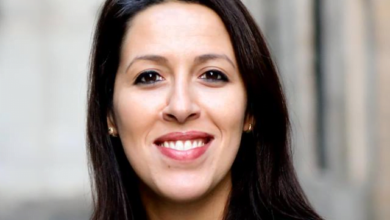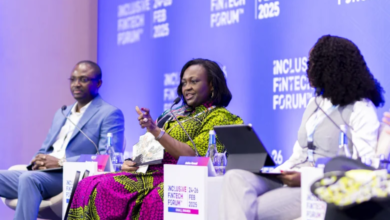BAL : when Basketball becomes a driver of economic transformation in Africa
The Nile Conference of the Basketball Africa League (BAL), taking place in Kigali until May 25, 2025, promises not only on-court excitement but also significant off-court developments. With players from across Africa, NBA stars, and local hopefuls, the BAL represents more than just a sporting tournament—it serves as a catalyst for integration and economic development on the continent.

Kigali, the capital of African basketball for nine days, is hosting the Nile Conference as part of the fifth edition of the Basketball Africa League (BAL). Four teams—Al Ahli Tripoli (Libya), MBB (South Africa), Nairobi City Thunder (Kenya), and APR (Rwanda)—are competing for one of the last three spots in the playoffs in Pretoria.
Africans can now live the NBA experience in their own country. In terms of quality and organization, we have really brought the NBA to the continent
Clare Akamanzi, CEO of NBA Africa
The city has embraced the BAL, celebrating an event that transcends sports. Clare Akamanzi’s statement encapsulates the ambition of this league, co-founded by the NBA and FIBA: to make basketball a catalyst for transformation across the continent.
International stars and African youth talent
For this Nile Conference, three teams are making their BAL debut: Al Ahli Tripoli, MBB, and Nairobi City Thunder. The competition is set to be intense, especially with the participation of Jaylen Adams, a former NBA player who has played for the Hawks, Blazers, and Bucks. As the 2022 Australian league champion and season MVP, he aims to lead the Libyan team to the finals.
Another highlight is David Craig, a 2.18-meter-tall South African, who becomes the tallest player in BAL history. Alongside him is 16-year-old Emmanuel Onoja, who joined through the BAL Elevate program, representing the future of African basketball.

Far from being merely a sporting spectacle, the BAL is establishing itself as a growth vector. According to Clare Akamanzi : “The BAL will be a force of transformation for Africa. We hope it becomes a major source of employment over the next ten years. Thanks to the BAL, around 650,000 young Africans should access quality professional opportunities. In just the past four years, we’ve already generated nearly 37,000 jobs.”
The sports economy in Africa, though underutilized, is beginning to show its potential. According to the African Union, the sector could represent up to 1% of the continental GDP by 2030, particularly through infrastructure, events, sports marketing, and the textile industry.
Candy Basomingera, Deputy CEO of the Rwanda Convention Board, recently noted that between 2021 and 2024, Rwanda hosted 70 sporting events, including the FIFA Congress and the General Assemblies of the International Automobile Federation, injecting $50 million into the economy and attracting numerous visitors. “This is the first time we’re organizing the Nile Conference. The week will be filled with activities: a welcome party, several concerts, an innovation summit, networking opportunities… We’re leveraging the BAL’s visibility to highlight local talent.”
A showcase for African integration
The BAL also symbolizes a form of African unity in action. Twelve clubs from twelve countries compete in four host cities: Rabat, Dakar, Kigali, and Pretoria.
“The BAL already concretizes the dream of Africa’s economic integration. When we observe the teams, we see players from very diverse countries. The fact that clubs from different countries compete and collaborate shows that the BAL already achieves, in its own way, the much-desired economic integration of Africa, said Clare Akamanzi.
Indeed, the competition offers a unique meeting space for the continent’s talents, within a context of regional mobility of skills, aligning with the objectives of the African Continental Free Trade Area (AfCFTA).
In Dakar, during the Sahara Conference, the public turned out in force, with packed stands, concerts, and celebrities like Khaby Lame. This popular success illustrates the growing enthusiasm for the BAL: from 45,000 spectators in 2021, the league reached 120,000 in 2024.
Broadcasting now extends to 214 countries in 17 languages via TV partnerships (Canal+, ESPN, NBA TV, TV5 Monde…) and digital platforms. This visibility contributes to promoting African basketball internationally.
Heading towards the grand finale in Pretoria
The Nile Conference is the final stage before the playoffs in Pretoria, where the top two teams from each conference and the two best third-placed teams will compete for the African championship title. APR, the Rwandan host seeking redemption after the 2024 setback, hopes to capitalize on home advantage to rank among the best.
Between high-level sports performances and clear economic ambitions, the BAL demonstrates that Africa can dream big with its own model. And Kigali, once again, becomes its vibrant symbol.
As the first professional league created by the NBA outside North America, the BAL was established in 2019 through a collaboration between the NBA and the International Basketball Federation (FIBA). With the mission to support basketball development in Africa, propel local talents onto the international stage, and inspire youth, the BAL brings together 12 clubs from 12 African countries.
Related articles :






